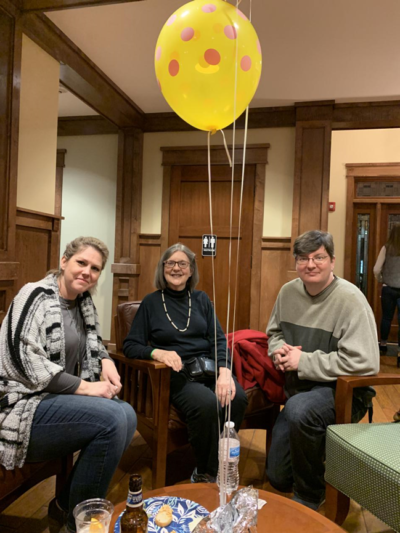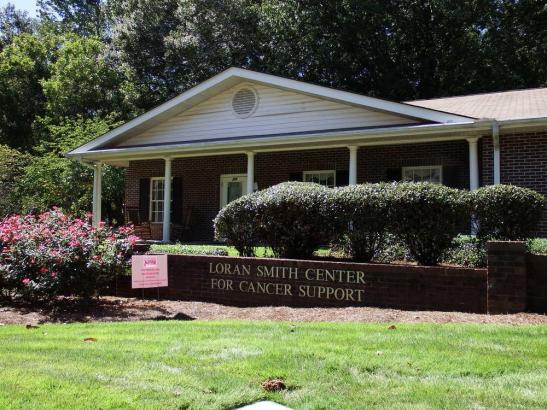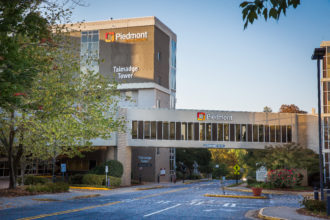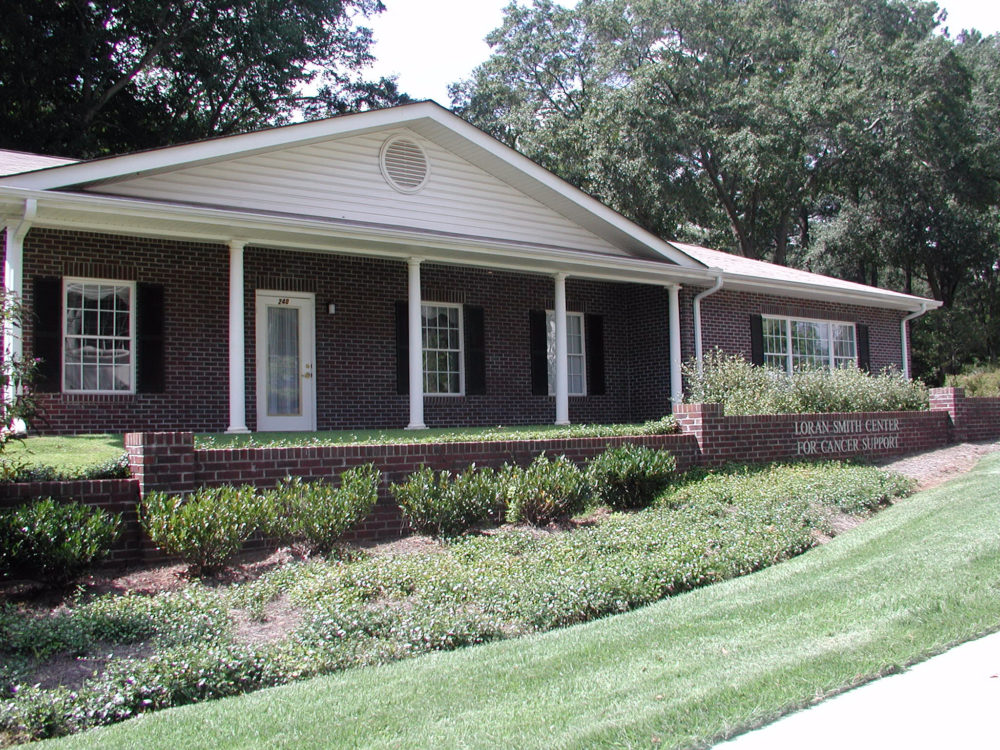By Yunxuan Gu
Linda Elkins visits the Loran Smith Center for Cancer Support in Athens about four times a week, but not for medical treatments like chemotherapy or radiation.
She goes for the free services — such as exercise classes, counseling and support groups — which offer the emotional help she still needs as a breast cancer survivor.
“You can relate to friends you meet here in a way that maybe you can’t relate to people who haven’t been through cancer,” Elkins said.

An estimated 50,450 people in Georgia are likely to be diagnosed with cancer in 2019, according to the most recent Cancer Facts and Figures report from the American Cancer Society.
While the immediate focus is on treatments that combat the physical manifestations of cancer, some centers also offer services to help patients, survivors and their families deal with long-term emotional, financial and other burdens of the disease.
That was the idea behind the Loran Smith Center for Cancer Support. It’s named for Loran Smith, a man who is renowned for his work with the University of Georgia athletics program, and whose voice is familiar to many thousands of sports fans who have never been anywhere near Athens. Smith is also a cancer survivor.

Since 2000, the center has provided North Georgia residents with educational workshops, individual and group counseling and access to a library of cancer resources and information at no charge.
Cancer patients do better when they have personal support in addition to medical care, said Joel Siebentritt, who manages the center’s support services.
“Seeing the relief on their faces at knowing there are professional caregivers who see them as a person, not just as a cancer patient, is most gratifying,” he said.
A comprehensive approach
Cancer is the second-leading cause of death in the United States, according to the National Center for Health Statistics.
Newly diagnosed cancer patients have a lot to consider as they embark on the road to becoming cancer-free. One issue is the daunting array of treatment options now available. (The abundance of choices is a blessing that was not available to previous generations, but it still can be intimidating.)
Patients and their caregivers also may experience emotional problems, such as depression and a feeling of helplessness, according to the National Cancer Institute.
Then there’s the financial burden: In 2014, cancer patients paid nearly $4 billion out of pocket for treatments, even though insurance paid most of the expenses, American Cancer Society data show. That financial burden can weigh on patients and their families.
Amid medical efforts to keep cancer patients alive, the emotional pressures they face can sometimes get little attention. Yet research suggests that patients want their physicians to take such issues into account during treatment. And a Yale University study found that 77 percent of patients wanted their spiritual needs to be considered as well.
“Spirituality is a central component of quality of life,” said Italian researcher Silvia Gonella in an email. Gonella is pursuing her doctorate in Nursing Studies and Public Health at the University of Turin. She is also one of several Italian authors of a study about spiritual care in cancer patients that was published in July 2018 in the journal Current Opinion in Oncology. The study found that spirituality should be regarded as a necessary part of medical science.
Gonella suggests that patients should be offered spiritual support as part of comprehensive and routine care. “Only the integration of all these dimensions of care allows a high quality care,” she said.

In 2016, the nonprofit Piedmont Healthcare system took over Athens Regional Medical Center, which included the Loran Smith Center for Cancer Support.
The merger was good news for the cancer center, as it offers financial stability while allowing the facility to maintain local control as a community hospital, Siebentritt said.
The largest part of the cancer center’s funding comes through the support of the Piedmont Athens Regional Foundation. The foundation’s office helps the center raise money, forge agreements with local businesses and apply for grants.
“Sometimes we work with businesses, and their passion is cancer awareness programs. So we would say, ‘If cancer is what’s interesting to you, we will direct your money to the Loran Smith Center,’ ” said Laura Lowery, the foundation’s gift officer.
Survivors help others
Sharon Stephens has been a patient at the Loran Smith Center for more than six years. Her husband, a prostate cancer survivor, used to facilitate a survivor group and introduced her to the center.
As a breast cancer survivor, Stephens feels it’s important to be with other cancer patients to give and receive emotional support.

Linda Elkins, in addition to being a breast cancer survivor herself, is now the primary caregiver for her husband, who has Parkinson’s disease. She believes that support from family members plays a critical role in patients’ recovery, and she encourages her children to support the causes that have helped the family.
Her son, Michael Elkins, participated in a March kickoff party for a 10K event called In Their Shoes.
“My mother takes advantage of lot of programs the Loran Smith Center offers. So I think at least we can do it to give back,” Michael Elkins said. “It’s not just raising money for the foundation, but also has healthy benefits for people who participate.”
Since 2006, In Their Shoes has raised more than $1.4 million for the center. The 10K run/walk was started by two cancer patients in the Loran Smith Center.
“They were friends. They came here, used our programs. They got through their cancer,” said Siebentritt. “They went on vacation together and decided to give back.”
Yunxuan Gu is currently pursing her master’s degree in journalism at the University of Georgia’s Grady College of Journalism and Mass Communication

